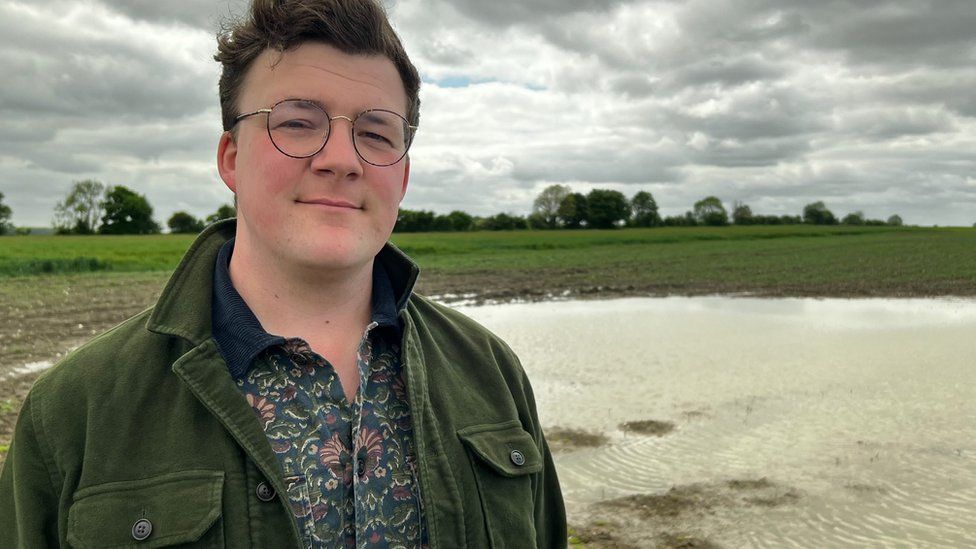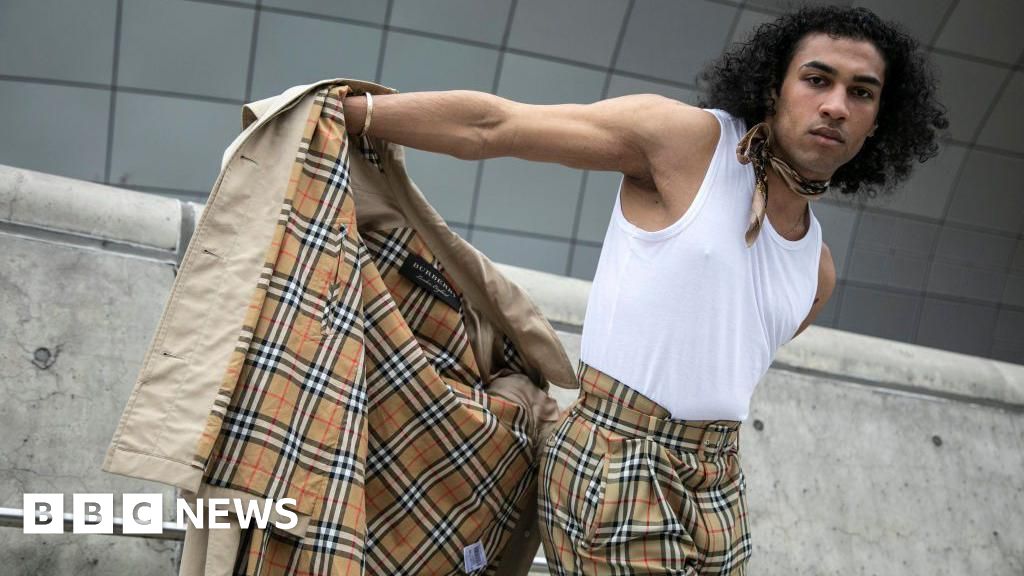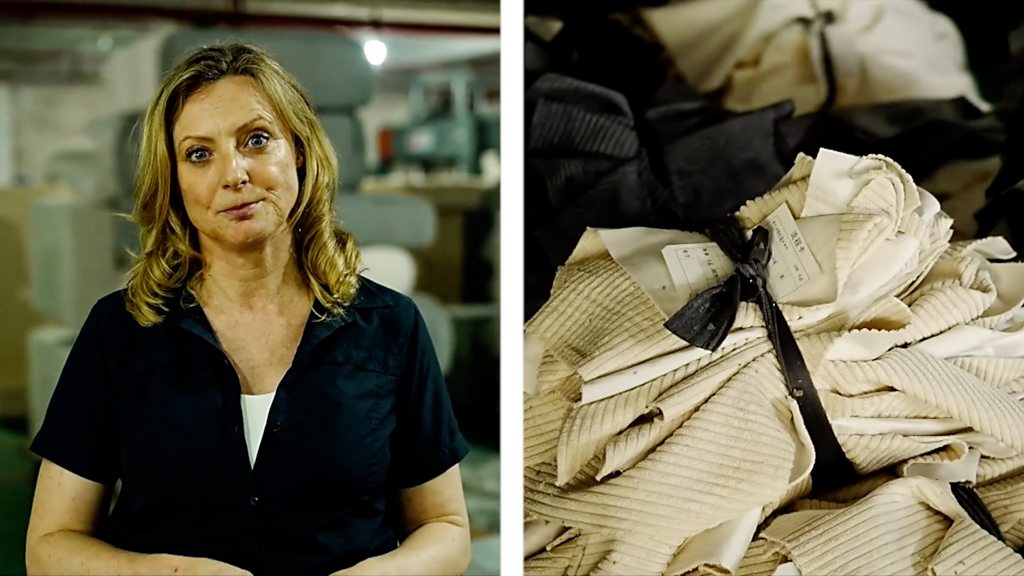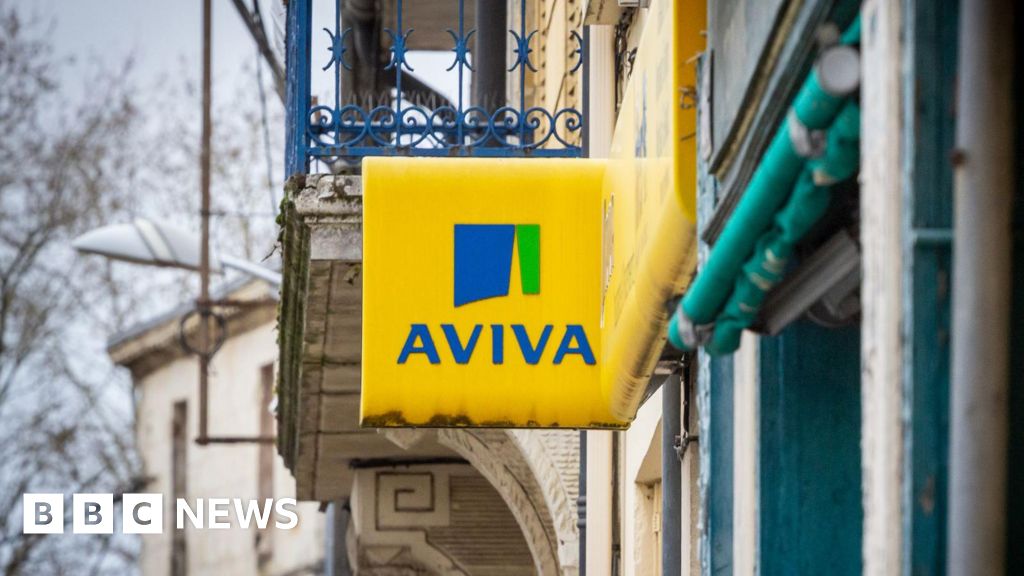ARTICLE AD BOX

Mike Wilkins has a lake in the middle of his wheat field
By Dave Harvey
BBC News West, Business and Environment Correspondent
Up to a quarter of the UK's wheat harvest will be lost this year, after the wettest winter since records began, according to the National Farmers' Union (NFU).
Persistent rain has either left seed rotting in the fields, or made it impossible to get tractors onto the ground to sow at all.
Wiltshire farmer Mike Wilkins has lost half the wheat he has sown this year.
"If we don't make a loss it will be a miracle," he said.
The NFU's Wiltshire chairman, Tom Collins, said the UK will have to import more wheat, "and that will put up prices on bread, cakes, and countless other things".
Waves where there should be wheat, this field has been flooded all year
On the Wiltshire Downs near Calne, Mr Wilkins farms with his mum, dad and sister. Their farm is 650ft up, with commanding views.
But as we walk into a field of wheat, we must pick our way past a fair sized pond.
"There is never water here in May," Mr Wilkins points out.
"This started flooding in August last year, and it doesn't look like it's going to be dry anytime soon."
Half the field still has wheat, but it is in poor condition, with weeds dotted throughout.
"We haven't been able to look after it, we just couldn't get a tractor on this field for weeks," Mr Wilkins said.
Half the wheat failed in this field, and had to be replanted with less profitable cattle beans
But at least there is some wheat growing. The other half of the field has tiny shoots of beans, which will eventually grow into much cheaper cattle feed.
Here the winter wheat, sown in autumn 2023, drowned under the long winter rains.
"You sort of watch it die," Mr Wilkins reflects, ruefully.
"You put so much effort into planting it, and the money you spend, and then it just fades away. And you have to start again, knowing this will earn you a lot less."
His family have farmed here for nearly a century, but no-one can remember losing so much wheat to the weather.
Between October 2022 and March 2024, England had 1,695.9mm of rainfall, the wettest 18-month period since records began in 1836.
Mr Collins, the county chairman for the NFU, told me their experience is bad, but not unique.
"Across the county we've lost about 15% of all our wheat," he said.
"The UK as a whole is higher than that, probably 25% down, a quarter down."
"It will put up prices on everything," says the NFU's Tom Collins
That means the UK will be short of about four million tonnes of wheat. The shortfall will be made up with more imports, which will cost more, he said.
Farmers are keen to point out that the wet winter is not only hitting their pockets, but will put up the price of bread and everyday staples, just as food inflation was starting to ease.
And, Mr Collins explains, wheat is in far more than just bread and cakes.
"Wheat is in sausages, it's in cosmetics, even in paracetamol. So not only food prices will rise, but the wider economy will be affected too," he said.
Feed across the floods: farmers are taking silage to cattle because grass is so poor
Down on the Somerset Levels, I went back to a farm I visited at the height of the winter floods.
In February, cattle farmer Mike Curtis showed me his fields, six feet underwater.
He had 200 acres of pasture flooded for around three months.
Now, the fields are green again, but as Mr Curtis takes me out in his tractor, he has a bale of silage on the front.
"We're taking feed out to the cattle, even though it is late May," he said.
"We shouldn't be doing this job until October, but the grass is just so poor we have to supplement their food."
When the tractor arrives, the cattle gallop across the grass. Dozens crowd around the feeder as the silage tumbles from the forks, jostling to get at it.
Mike Curtis has to feed silage to his cattle five months early, because the grass is still recovering from floods
Mr Curtis said he should be saving this silage for the winter, but he has no choice.
And worse still, the farm is not producing any new grass to make silage to replace it.
Normally he would hold back 100 acres of pasture to cut and wrap in the familiar black plastic, ready for the winter.
But this year, his cattle will need to eat everything that grows.
"For the last 20 years I've kept 600 cattle on this farm. We're already down to 450, and by the winter we'll be down to 300. And that obviously cuts the business in half," Mr Curtis said.
Bread, beef, butter, cheese, milk, even cosmetics will all cost more to produce as the harvest comes in short this summer.
Politicians love to talk about 'bread and butter issues'. The change in our climate is becoming quite literally that.
Related Internet Links
The BBC is not responsible for the content of external sites.

 11 months ago
51
11 months ago
51








 English (US) ·
English (US) ·